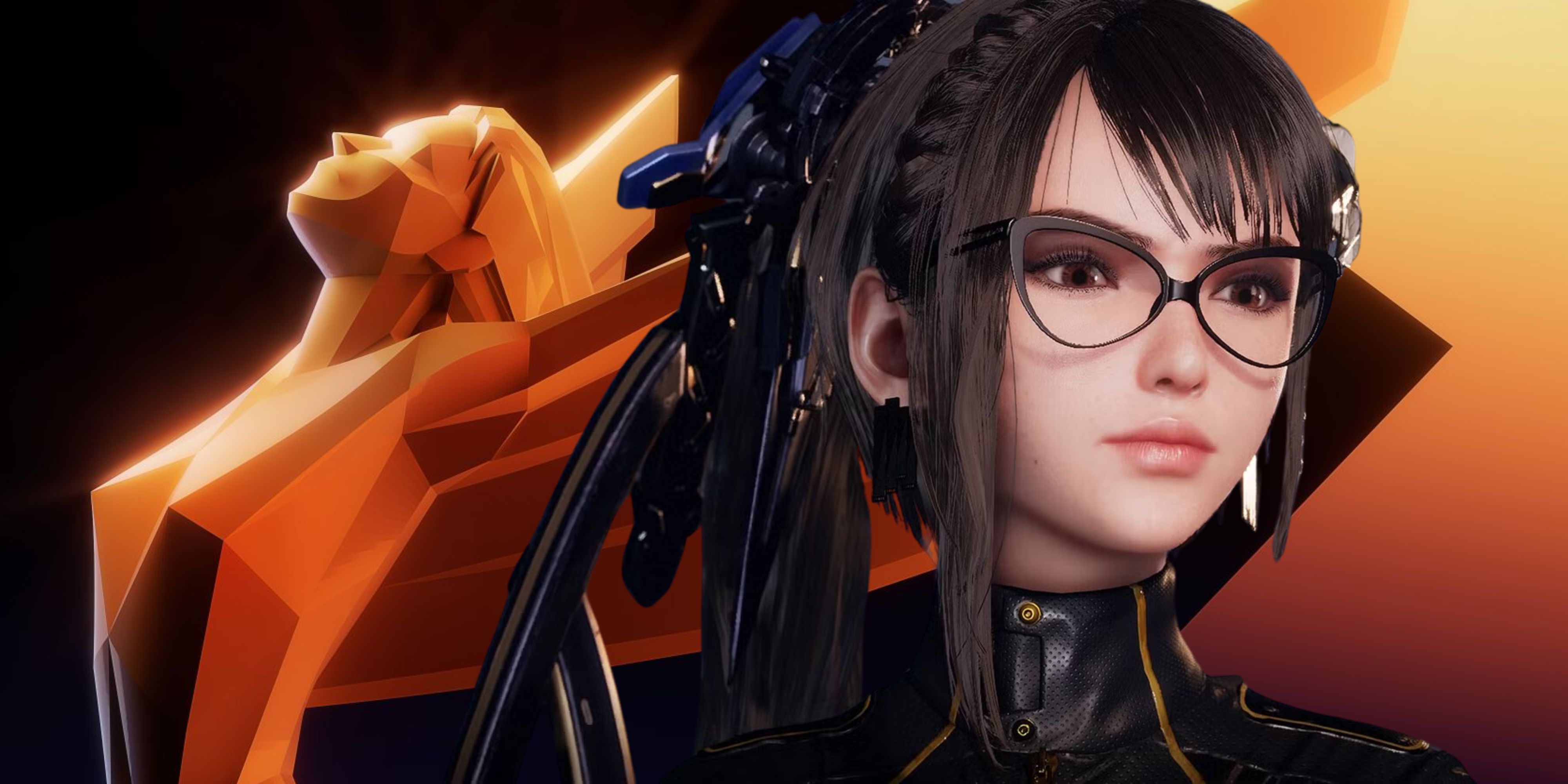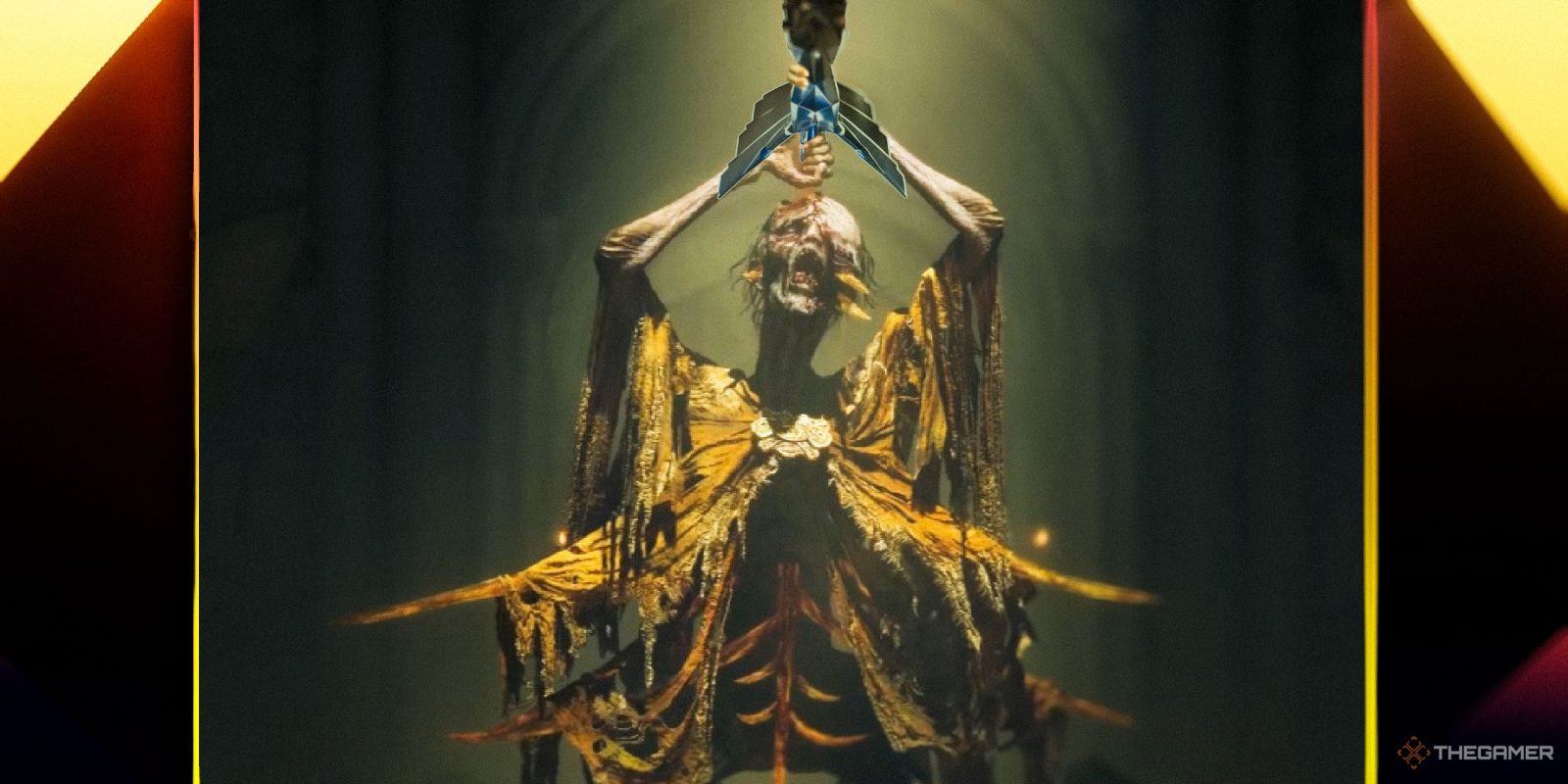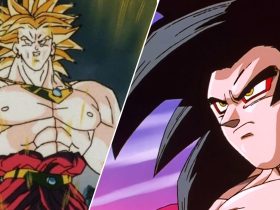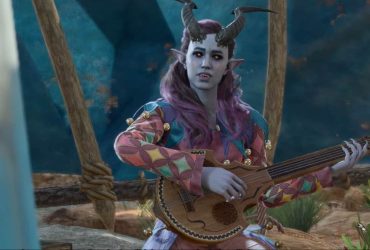The Game Awards is always controversial. Sometimes for good reason: here at TheGamer, we’re very critical of how the show is more of a marketing showcase than an actual awards show, and how tangentially related actors get more airtime than the actual winners. There’s also annual online discourse about the nominees and the snubs.
Usually, you only see people complaining about the show once the nominees are released and the show actually happens, but this year, the discourse has started early. It’s now been announced that DLC, expansion packs, remakes, remasters, and even new seasons of existing games are eligible for Game of the Year, and a lot of people are very unhappy about it.
DLC Has Always Been In The Running
This isn’t necessarily surprising – we’ve seen DLC, expansions, and remakes nominated in various categories over the years, and the rule itself is not new. The Witcher 3’s Blood and Wine won Best Role Playing Game in 2016, XCOM 2’s War of the Chosen expansion pack was nominated for Best Strategy Game in 2017, and Cyberpunk 2077: Phantom Liberty was nominated for Best Narrative in 2023.
Many remakes have also been nominated for GOTY before this year, including Final Fantasy 7 Remake in 2020 and Resident Evils 2 and 4.
Many speculated that this clarification – specifically with regards to DLC – was because for the first time, an expansion is going to be nominated for GOTY. As many suspected, Elden Ring’s Shadow of the Erdtree was the expansion in question, and while nobody was surprised, a lot of people are saying it goes against the whole principle of Game of the Year, emphasis on the ‘game’.
One of the annoying things about The Game Awards is that there are very few actual rules. There don’t seem to be guidelines over what defines an indie, which is how Dave the Diver got nominated for Best Independent Game despite it being developed by a Nexon subsidiary, while Baldur’s Gate 3, a game made by an independent studio, wasn’t. Similarly murky rules also led to Cyberpunk 2077, a single-player narrative game, winning Best Ongoing Game last year in a category otherwise filled with live-service titles.
Like many people, I think it’s quite silly that this murkiness is now allowing for the rules to be bent for Shadow of the Erdtree. DLC and expansion packs aren’t full games, and therefore shouldn’t be judged alongside completely new titles. But what’s more interesting is why these rules are being clarified now, and what this says about the industry.
The Game Awards Are Choosing To Deprioritise Innovation
It’ll surprise nobody to learn that as a whole, the game industry has been leaning heavily towards remakes. In fact, culture as a whole is moving towards remakes and reboots. It’s safer for studios to keep doing the same thing over and over than it is to risk time and money on new ventures, which means more DLC, more remakes, and more remasters. Studios are going broke because they dared to try to make something new, and the vacuum is being filled with stuff companies know we already love.
There will be more remakes of beloved games, and therefore more demand for them to be recognised at awards shows. Triple-A gaming is already collapsing under the weight of spiralling budgets and development cycles. As the triple-A landscape evolves to accommodate, so will The Game Awards. This might have been a clarification made mostly to justify one specific nomination, but I won’t be surprised if we start seeing remakes and DLC considered for GOTY more regularly from now on. Maybe The Last of Us Part 2 Remastered Remastered can win in 2029.

Next
The Game Awards Has Bigger Problems Than Shadow Of The Erdtree
I wish Shadow of the Erdtree’s potential nomination was the story of The Game Awards. It isn’t.












Leave a Reply